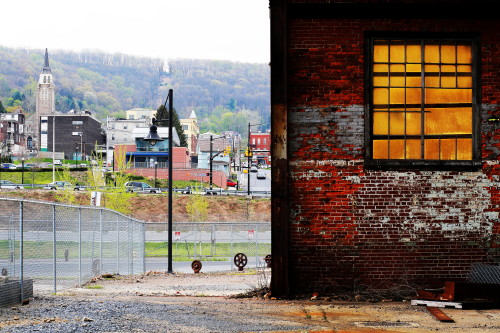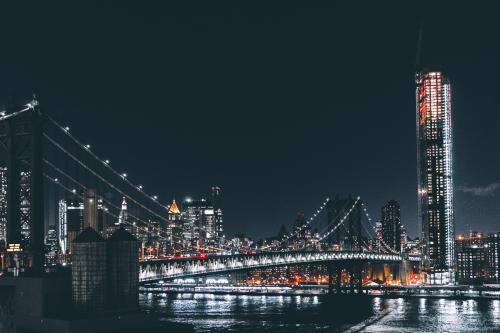Less than three months after the first protests began in New York, Occupy Wall Street has spread to cities across the country and started a national dialogue on income disparity in the United States. Eager to translate the momentum of the movement into concrete political action, a coalition of labor and progressive groups announced “Occupy Congress” from December 5 to 9, hopeful that thousands of Americans would join in Washington to rally at the Capitol.
What is the ultimate goal of the Occupy movement? Can it unify around a core political agenda and make a meaningful impact on Washington? On December 7, Elisabeth Jacobs answered your questions on the Occupy Wall Street movement and its potential to impact Washington in a live web chat moderated by POLITICO.
12:29 Vivyan Tran: Welcome everyone, let’s get started.
12:29 Comment From George: Can you explain the relationship between “Occupy Wall Street” and “Take Back the Capitol?”
12:30 Elisabeth Jacobs: Thanks for the question, and thanks to everyone for joining me today!
12:35 Elisabeth Jacobs: The Occupy protests and the Take Back the Capitol events in DC this week share some basic elements. They’re both motivated by the same set of concerns — issues of economic and political justice. Both groups are concerned with the economic issues facing “the 99 percent” — rising unemployment, rising inequality, etc. And both groups are concerned with the lack of political action on behalf of the 99 percent, particularly in light of the bank bailouts. But there are important differences between Occupy and Take Back the Capitol. While the Occupy protests have no formal “leader” or institutional affiliation, Take Back the Capitol is organized by a coalition of left-leaning groups — unions, progressive interest groups like MoveOn and Rebuild the Dream. And Take Back the Capitol is explicitly targeting politicians, and making some concrete “demands” like extending unemployment benefits, while Occupy tends to shy away from this kind of thing. There are many Occupy participants who have come to DC to take part in Take Back the Capitol, though.
12:35 Comment From Tony: Why has Occupy Wall Street struggled to come up with a unifying set of demands for their movement?
12:38 Elisabeth Jacobs: Occupy doesn’t see their role as coming up with specific demands, but rather as providing a space for everyday Americans — the 99 percent — to express their frustration with the status quo and to create a space/community for moving forward toward “something new.” They often say “we are our demands.” I heard an Occupy participant say that it’s the job of places like Brookings and policymakers themselves to come up with specific demands, while the job of the movement is to raise consciousness about the issues of economic and political justice facing our nation.
12:38 Comment From Fiona: What’s your reaction to comments that the Occupy protestors are using other peoples’ resources i.e. food donations, public bathrooms etc. and should go get a job?
12:39 Elisabeth Jacobs: Many of the Occupiers have jobs — this is a fact that’s too often lost in the media coverage, which tends to focus on the more colorful characters. Lots of folks who have participated in the Occupy protests are employed, and show up when they can to lend their voice to the protests. And lots of these folks are “underemployed” due to the lingering impacts of the Great Recession, so some of them have more time on their hands than they’d like!
12:41 Comment From Alice: Do you see the Occupy protestors organizing themselves at the ballot box in the same way as the Tea Party movement? If they don’t, can they really hope to impact the political system of the US?
12:46 Elisabeth Jacobs: That’s one of the million-dollar questions! The Tea Party has got three main components — convenient, since they’re associated with those tri-corner hats! The activists are the folks we all associate with the Tea Party — the people in the hats, getting together for rallies, etc. The second key piece is a conservative media establishment that’s been critical to getting their message out. And the third piece is institutional backers — organizations and individuals with money and influence who have been able to give the movement structure and power. Without all three of these pieces, the Tea Party probably wouldn’t have had much impact on the midterm elections in 2010. Whether Occupy mobilizes in the same way is a big question. They’ve got the big idea (policies on behalf of the 99 percent), and they’ve got the grassroots folks on the ground. The investment of some big institutional players seems to be taking root with the Take Back the Capitol events, but it’s not clear what the relationship between the grassroots and the institutional actors will be. I think that relationship is one to watch over the coming year. That said, even if they’re not able to truly organize and mobilize around the election, Occupy has already had an impact. President Obama borrowed heavily from the language of Occupy in his speech in Kansas yesterday, and Republican strategist Frank Luntz has been advising the GOP on how to combat the Occupy message.
12:47 Comment From Bill in Va: They call themselves the “99%” but some large percentage at the top of the 99%, say 10-15%, are also very well-off people, probably earning in the multiple six figures. So, why the “99%” moniker and do you think the OWS movement is getting any support from the upper echelon?
12:54 Elisabeth Jacobs: Well, “We are the 99 Percent” is far catchier than “We are the 90 Percent,” for starters! But, more importantly, the 99 percent message is rooted in sound economic fact. The top 1% of the population has seen their incomes grow by leaps and bounds over the last few decades — actually, the most phenomenal growth is evident amongst the .01%! — while the rest of the income distribution has seen far slower growth. So the 99 percent frame is both a snappy tagline and rooted in basic economic facts. As to whether the Occupy movement is garnering any support from the 1%, I think the answer is yes. A group of “Patriotic Millionaires” has lobbied Capitol Hill for higher taxes on the wealthy, echoing the Occupy message. And some very wealthy individuals — millionaires — have provided donations to the Occupy movements around the country.
12:54 Comment From Julian: President Obama has recently started to employ some of the language of the Occupy movement in his public speeches. Do you think he will increasingly try and align himself with Occupy Wall Street as he seeks reelection in 2012?
12:58 Elisabeth Jacobs: The President borrowed heavily from Occupy in his remarks in Kansas yesterday, and he’s certainly been more focused on issues of inequality as of late. But I think he is going to walk the fine line between borrowing some of the more effective elements of the Occupy message and aligning himself with Occupy itself. Much of the Occupy message — the economic justice elements — are quite popular with the general public. But folks are wary of the protestors’ tactics, and they’re wary of civil unrest. So the President has a tough balancing act here — capturing the populist energy that’s resonating with so many folks who have been impacted by the Great Recession and the middle class squeeze of the last few decades, but avoiding charges of “class warfare” and associations with “the great unwashed.”
12:59 Vivyan Tran: Thanks for tuning in everyone. See you next week!



Commentary
Web Chat: Occupy Wall Street Heads to Capitol Hill
December 7, 2011